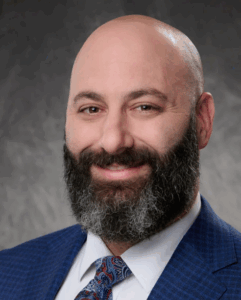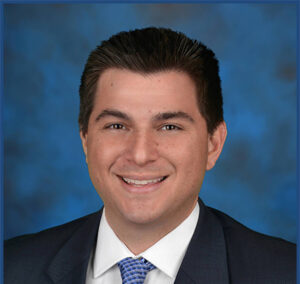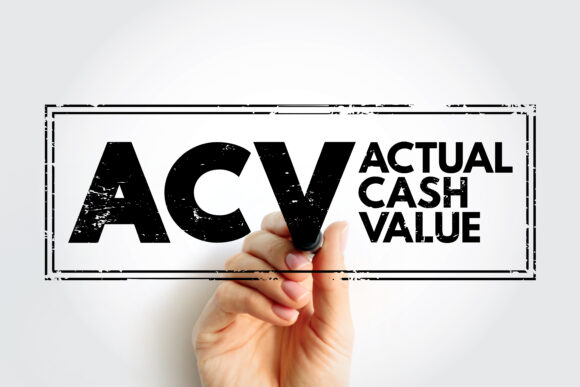In what is being seen as a significant win for property insurers, a Florida appeals court last week found that Universal Property and Casualty Insurance Co. did not breach the insurance contract when it paid just $8,125 on a homeowner’s Hurricane Sally claim.
The plaintiff’s attorney in the case said the ruling by Florida’s 1st District Court of Appeals creates another challenge for insureds by requiring an actual cash value estimate before filing suit, or they will be barred from prevailing in litigation.
“It’s the insurance company’s burden to apply depreciation but this puts the burden on the policyholder,” said Michael Cassel, who represented Pensacola homeowners Rodolfo Bailetti and Ana Saez in the case.
Another Florida policyholder lawyer agreed.

“The opinion seemingly makes the bold suggestion that even though the carrier’s own expert effectively concedes Universal’s own ACV estimate was deficient, the insured’s failure to submit a competing ACV estimate before filing suit is fatal,” said Gina Clausen Lozier, a south Florida attorney who was not involved in the case. “This analysis turns well-settled contract law on its head.”
An Florida insurance defense lawyer strongly disagreed with that assessment. The appellate court decision, stemming from a claims lawsuit brought before Florida lawmakers snubbed out one-way attorney fees in 2022, reinforces other recent court rulings and state law – and upholds policy requirements on estimates and repair receipts, said Josh Beck, a Boca Raton attorney who represents insurers.
“Why was there a race to the courthouse if you don’t even know what the dispute is, or even make an attempt to make the repairs?” Beck asked.
The dispute began in 2021, almost a year after Hurricane Sally, a relatively minor Category 2 storm, hit the western edge of the Florida Panhandle. The homeowners filed a claim with Universal over storm-caused water leaks in the roof and windows, along with interior damage. The couple hired a public adjuster but, crucially, the inspection report was never admitted into evidence, and the public adjuster did not testify at trial.
Two months after the storm, Universal sent its own adjuster, who estimated the damage at $20,536. After calculating depreciation and the $6,000 deductible, the Fort Lauderdale-based insurer paid the homeowners $8,125. A letter explained that the couple could recover $6,146 in depreciation by submitting invoices, signed contracts, photographs and other documentation showing that repairs had been completed, the appellate judges explained.
Four months later, the insureds filed suit in Escambia County Circuit Court, arguing that Universal had breached the policy because the insurer knew that the insureds’ repair estimates were far greater than Universal’s estimate. It was only at trial that the plaintiffs presented a contractor’s repair estimate – an estimate created more than two years after the storm.
Also at trial, Universal’s construction expert testified that the actual cost of repair would be about $31,637, and that Universal’s initial adjuster report was “probably deficient.” But the appeals court pointed out that the expert had never said that the insurer’s reliance on the initial estimate was a breach of the insurance contract.
A Pensacola jury in 2024 found that the homeowners did not prove that Universal had breached the contract. Bailetti and Saez appealed. The 1st District Court of Appeals upheld the verdict in its Oct. 8 opinion. The court noted that the insurance policy comports with Florida statute 627.7011, which places the burden on the insurer to pay at least the actual cash value of the insured loss.
“But once the insurer provides an ACV estimate and pays that estimate sum, the burden shifts to the insured to demonstrate that the payment did not reflect the fully insured loss,” the appellate judges wrote.
When no evidence supports a disagreement on actual cash value, “a factfinder cannot conclude which of the two amounts is correct,” the court noted.
The decision underscores findings in at least three other Florida appeals court decisions in the last four years, including Homeowners Choice Property and Casualty Insurance vs. Clark, handed down in March of this year. In another, the 1st DCA noted in 2021 that damages should be assessed at the time of the breach rather than at the time of the trial. The insureds in the Pensacola appeal never sought to amend their complaint to include any alleged breach occurring after June 2021, when the suit was initiated, the appellate judges explained.
Cassel said that those and other previous court decisions have actually provided conflicting guidelines, and the Florida Supreme Court should weigh in with a final ruling to provide clarity. If the 1st DCA does not reconsider its decision in the Bailetti case, it’s likely that the homeowners will ask the high court to review.
“Meanwhile, one side of the insurance debate will have the benefit of this DCA opinion,” Cassel said.

Some Florida insurance attorneys have said that actual cash value versus replacement cost value continues to create unnecessary friction in claims disputes. Property insurers have long argued that public adjusters’ estimates are often greatly inflated, that it’s not always clear if the estimates are ACV or RCV, and they should not be considered reliable damage estimates.
Universal’s attorney in the appeal, Paulo Lima, declined to comment on the Bailetti case.
Beck noted that the Bailetti suit was filed before Florida’s famous 2022 legislative reforms were enacted, changes that took away large attorney fees for plaintiffs, in many cases, and have disincentivized some claims litigation.
“What it comes down to is, if the insurance company issues payment to make repairs and you make no attempt to repair, and you don’t provide any other documentation showing there was a disputed amount of the ACV of the loss, then what was the reason for filing the lawsuit?” Beck asked. “It doesn’t have to immediately be an adversarial proceeding.”
Clausen Lozier, who represents policyholders in claims disputes, said that the Bailetti ruling creates yet another roadblock for insureds looking for a fair settlement.
“In other words, it doesn’t matter that Universal committed a ‘prior breach,’ the insured’s failure to have an ACV estimate at the time of filing of litigation precludes them from recovery,” she said.
The appellate court denied attorneys’ fees for the plaintiffs and remanded to the lower court the question of fees for Universal’s lawyers.
The DCA opinion can be seen here. The plaintiff’s initial appeal brief is here.
Was this article valuable?
Here are more articles you may enjoy.



 BMW Recalls Hundreds of Thousands of Cars Over Fire Risk
BMW Recalls Hundreds of Thousands of Cars Over Fire Risk  World’s Growing Civil Unrest Has an Insurance Sting
World’s Growing Civil Unrest Has an Insurance Sting  ‘Structural Shift’ Occurring in California Surplus Lines
‘Structural Shift’ Occurring in California Surplus Lines  Trump’s EPA Rollbacks Will Reverberate for ‘Decades’
Trump’s EPA Rollbacks Will Reverberate for ‘Decades’ 


